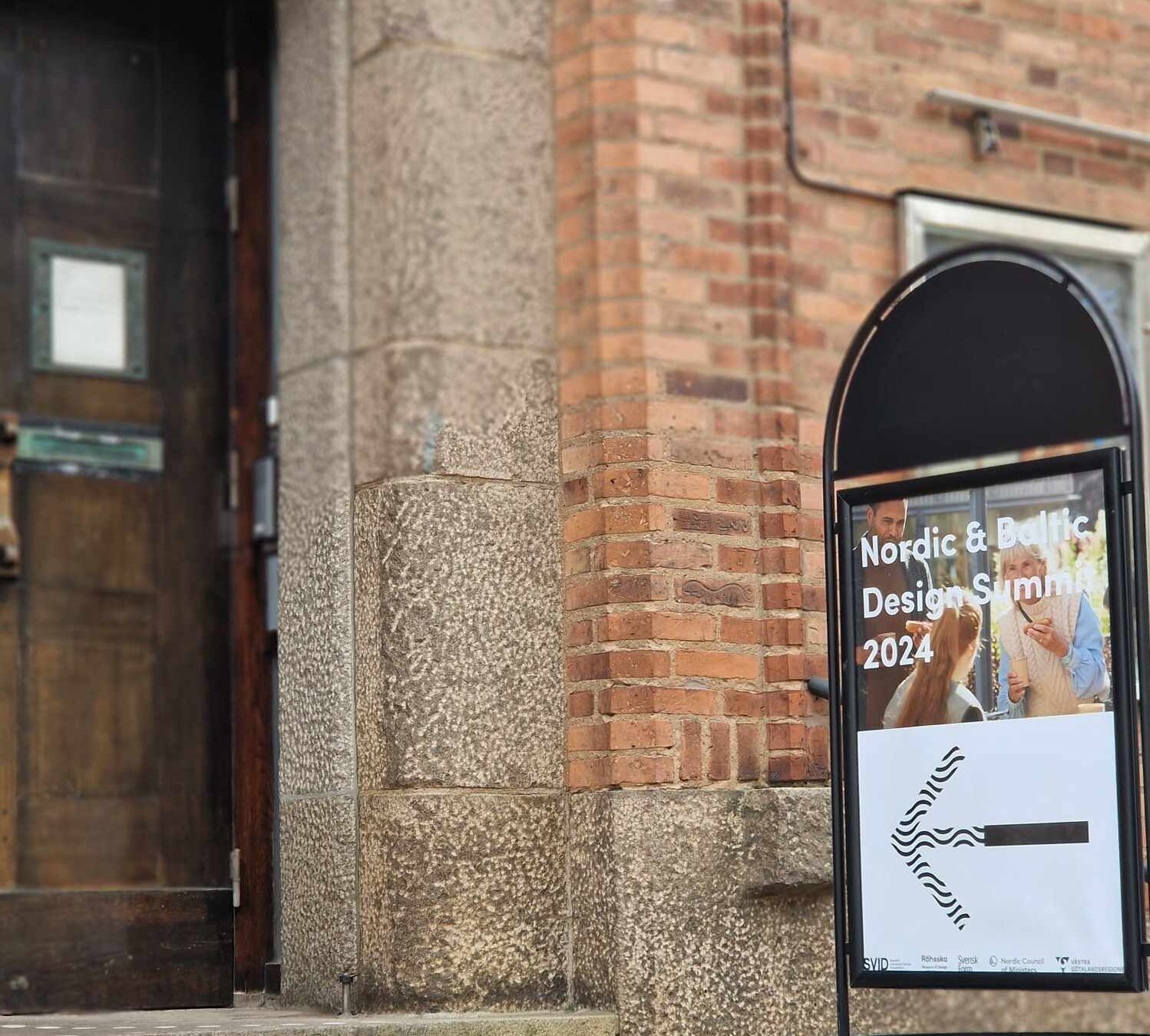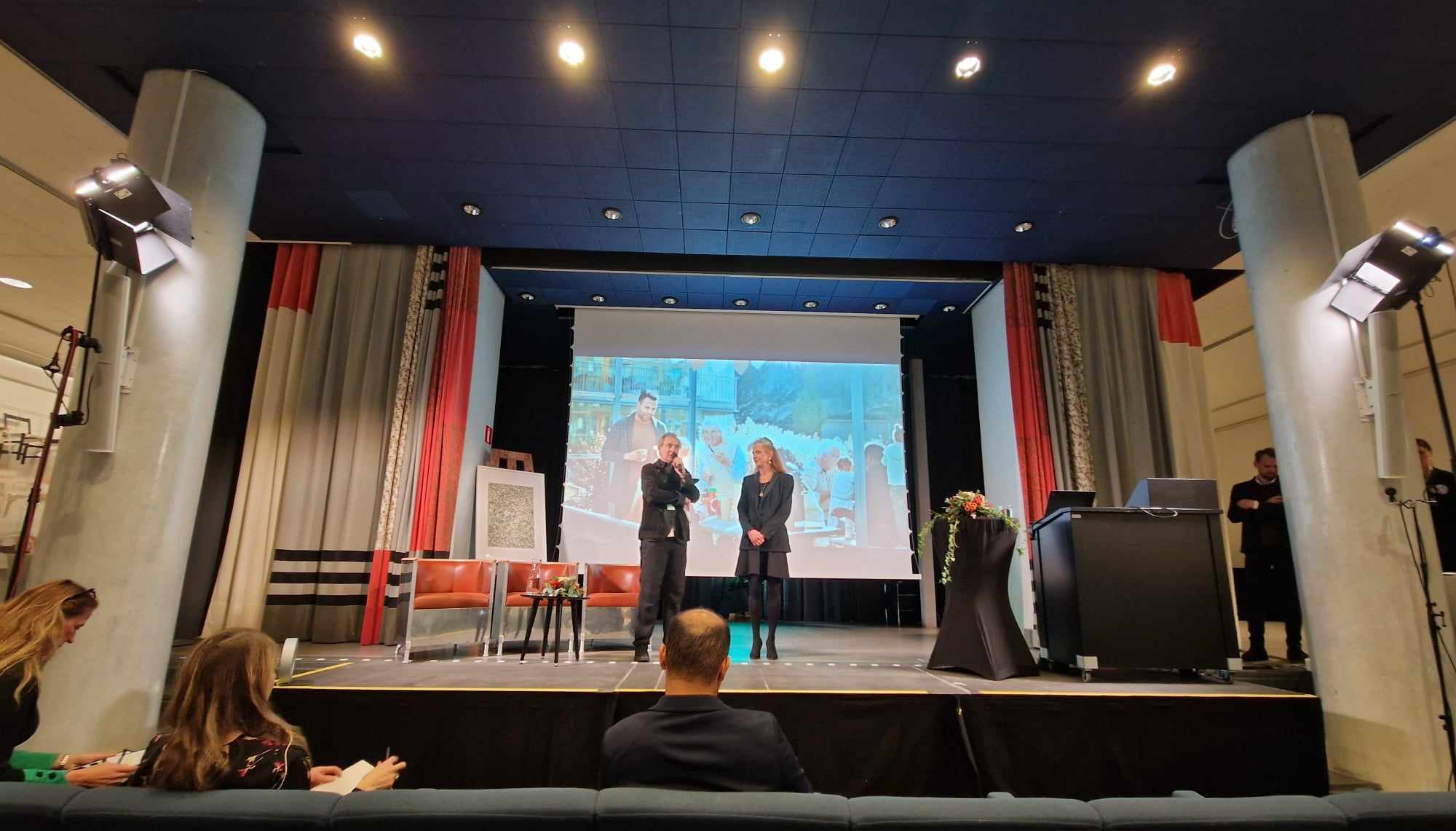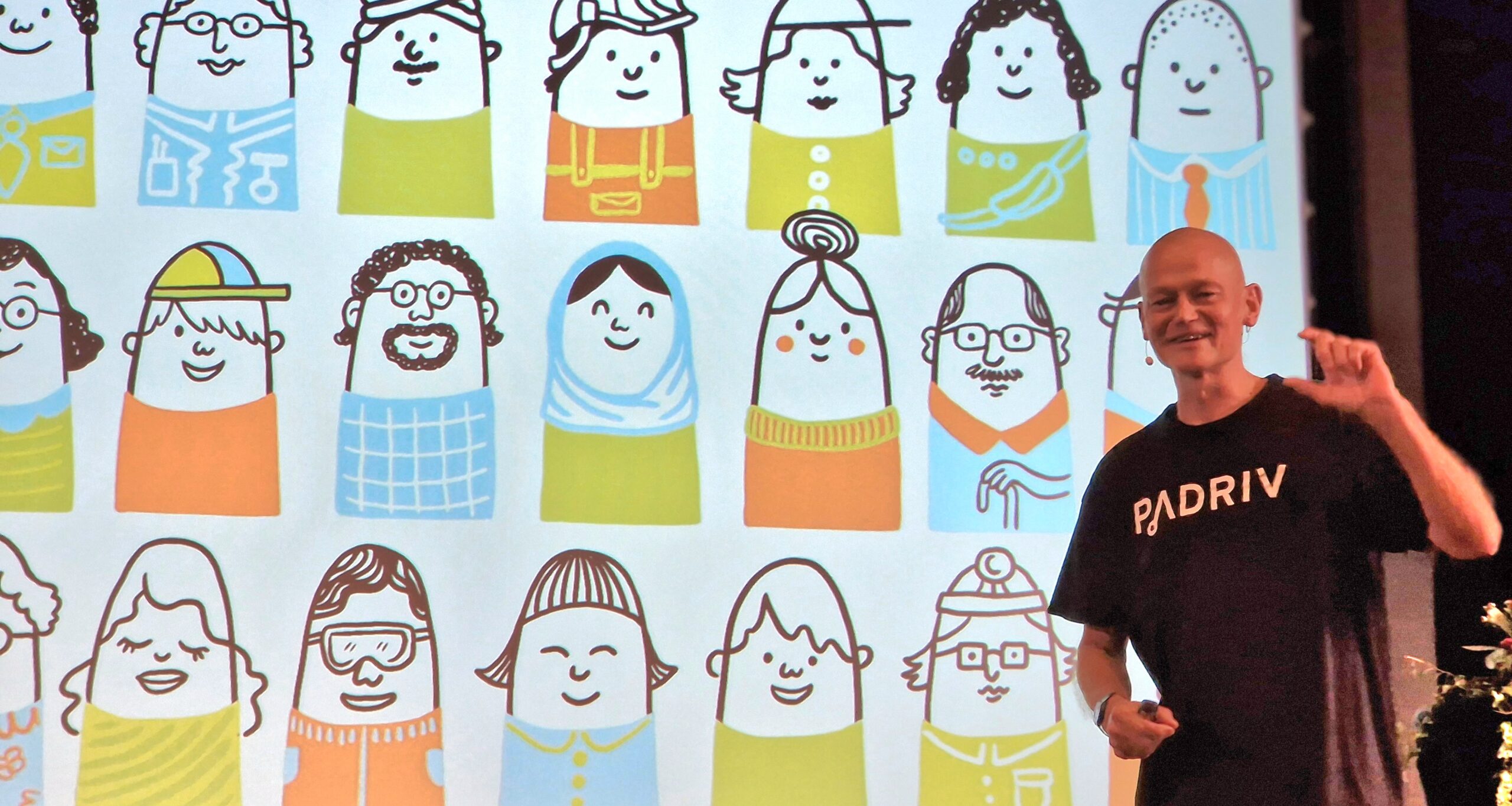5 inspiring cases from the Nordic and Baltic Design Summit 2024

In October 2024, SVID (Stiftelsen Svensk Industridesign) arranged the conference Nordic and Baltic Design Summit in Gothenburg.
During our participation in the conference, we collected some of the best cases that we now want to share with our network.
Nordic and Baltic Design Summit 2024
Design and sustainability
The theme for the conference Nordic and Baltic Design Summit 2024 was “Design for a green, viable and socially sustainable Nordic and Baltic region”.
The conference focused on the power of design, and design as a key aspect of moving from linear to circular. Design can be shape and collour, but it can also be a central part of an organization’s strategy for forward thinking, innovation and sustainability work.

SVID, the oganizers of the conference, defines design as a creative work process where you dive into the situation and needs of the user, customer, citizen or patient before describing the problem and developing solutions.
80% of a product’s environmental impact is determined in the design stage, stated Anne Raudaskoski, one of the speakers at the conference. With that in mind, designing products, services, places and processes that, at an early stage, consider sustainability through the entire cycle – production, use and recycling – is of the utmost importance.
Topics during the conference
The conference revolved around topics such as circular economy, sustainable urban development and lifestyles, as well as a sustainable transformation of both the energy and fashion industries. The participants and presenters came from Sweden, Norway, Denmark, Finland and the Baltic countries Estonia, Latvia and Lithuania.
For many who work with sustainable urban development in the context of the public sector, circular economy is probably not a new concept. However, many may raise an eyebrow at what fashion and textiles have to do with social development. As a matter of fact, the textile industry globally accounts for around 10% of the total emissions of greenhouse gases, and contributes both to ecosystem loss and toxic emissions. In addition, very poor working conditions are often reported in the textile industry, for the workers who make the garments we consume in the “Western world”. Moreover, new EU legislation will (from January 1st 2025) require that textiles are sorted out and separated from other waste for recycling – and thus prepared to contribute to the circular economy of raw materials to a greater extent than today.
The topic of sustainable textile also engages several of Openlab’s partners. Some current examples are that Region Stockholm’s sustainability award (Hållbarhetspriset i miljö) 2024 went to a project to reduce textile waste at Södersjukhuset. KTH explores the topic through an upcoming open lecture on sustainable textile industry on November 13, 2024. The city of Stockholm is also one of the municipalities that on its own initiative set ambitious goals to reduce the residents’ consumption-based emissions. In other words, this is a challenge we will be hearing more about in the years to come.
Inspiring examples from the Nordic and Baltic Design Summit 2024
From the stage, the conference participants were presented with a multitude of good examples from academia, industry, the public sector and research institutes. Here is our selection of cases to be inspired by:
Krulli, Estonia
Indrek Hääl spoke about Krulli, a human-based approach to urban renewal that transforms a former factory area outside Tallinn into a vibrant area with a mix of residential, commercial and recreational areas. We were particularly impressed by the reuse of both buildings and materials in the creation of the new design, and the ambition to create another ’15-minute city’ – but this time with 10 minutes to spare! Don’t we all need to slow down? (We sure do.)

Pådriv, Norway
Aasmund Bunkholt shared, with great enthusiasm, his experiences from Pådriv, a new Oslo-based platform for collaboration between public, private and social stakeholders working together to drive sustainable urban and community development in an action-oriented and non-hierarchical way. This is what all cities need – action, and why not in the way that we at Openlab often promote; do first, think, do again!
Sun in my backyard, Sweden
Bodil Karlsson from Rise inspired with the example “Sun in my backyard, SIMBY”. The name of the project alludes to the concept “not in my backyard” in relation to solar plants. They embarked on an exploratory journey around our relationship with the sun and solar energy, both from a personal level to a system perspective. The project has so far resulted in some speculative design prototypes of beautiful solar devices that we would certainly like to see in our backyard!
SPIN-IN for Sustainability, Denmark
Pia Hansen and Helene Jensen talked about “SPIN-IN for Sustainability”, a design sprint program for the fashion industry to adopt and implement innovative, sustainable methods and business models through collaboration with students from different fields such as design and business. At Openlab we are excited to see an approach similar to our own challenge-driven Master’s course, which seems to be having an impact on driving change towards a more sustainable fashion industry.
Slow down faster, Sweden
At the conference, design students from the University of Gothenburg, HDK Valand, were also present to display and discuss their work. One of them was Ingrid Öberg with the piece “Slow down faster”, which explores the slowness of traditional methods versus the speed of restaurants and fast food industry. Her set table was covered with compostable textiles dyed with food waste (!) and joined together in patchwork technique. The color originating from coffee grounds and black rice may not be surprising, but who knew such a warm pink color came from bioled avocado seeds?

Slow down faster. Photo: Robin Rydén/Göteborgs universitet
Are you interested in more events and activities about design, sustainability and improving society? Check out Openlab’s events, sign up for our newsletter or follow us on LinkedIn to make sure your get our updates on upcoming events.